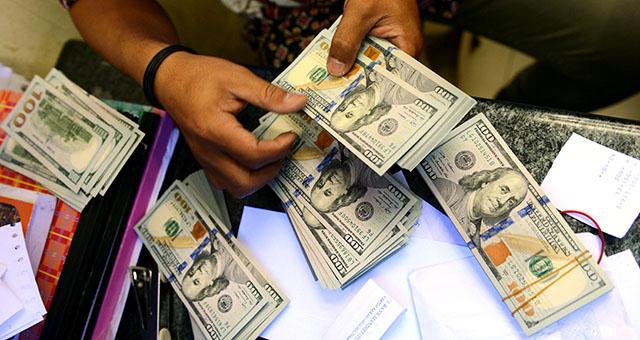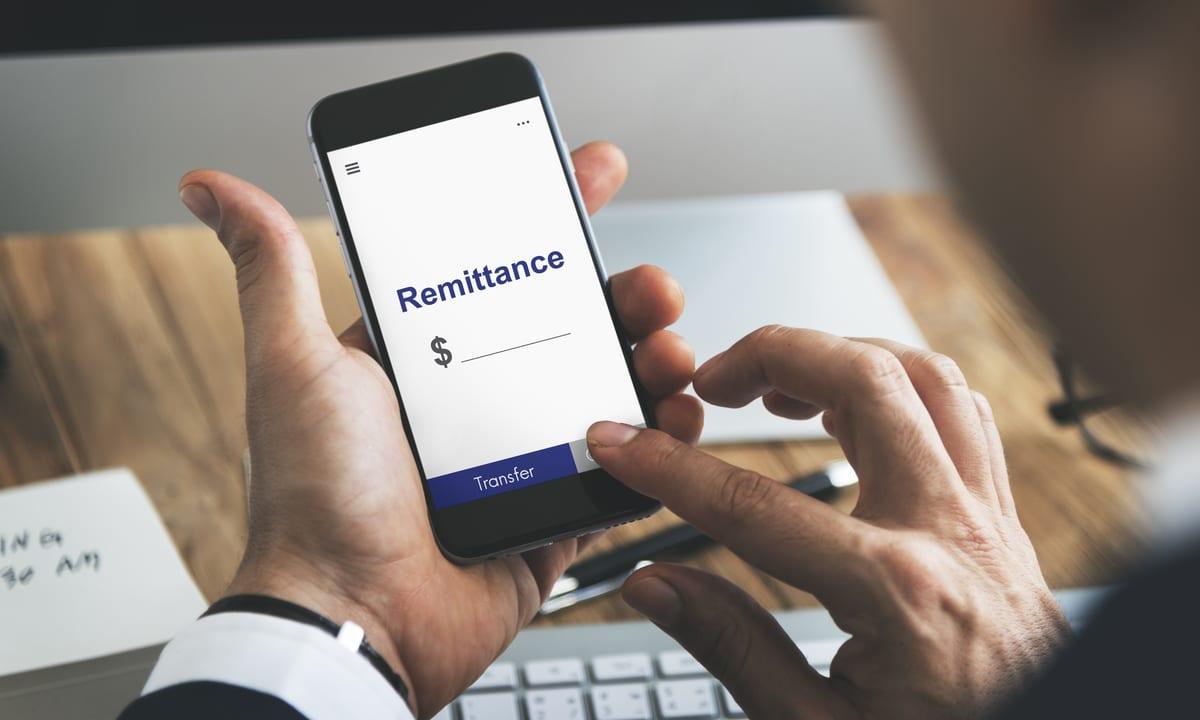7 Smart Financial Moves for Immigrants
Moving completely to another country and figuring out how to settle down can seem overwhelming — learning their financial system even more so. While it’s true, there are resources available that may help you navigate it all, it’s not easy to understand where to look and which ones to prioritize.
That will help you build a new life in your new country, we’ve compiled the most important financial moves for immigrants to help set you up for success. These seven smart steps include:
Plan Out Goals For The Next Six Months
Moving completely to another country will mean that there are a variety of expenses to take into consideration. This includes anticipated costs such as moving expenses, transportation, and security deposits for a new apartment.
That’s why it’s vital to map out your expenses for the following six months so that you can set aside cash if — you may be unable to borrow money until you establish credit (more on this below).
To start, examine what is important to move and settle into your new country. Adina Appelbaum, the creator of Immigrant Finance, says to first take a look at most pressing needs like hiring an immigration lawyer or sending money back to your dwelling country. Once you’ve addressed those needs, go through the basics like housing, food, and transportation.
Granted, it’s hard to estimate how much you’ll spend on variable costs like food and transportation, for example, but do your best and search online for approximate costs to reach a ballpark figure.
Get a Spending Account
Getting the right spending account to suit your needs is an important move because it’ll be a place where one can keep your cash and conduct everyday transactions.
Thankfully it’s relatively easy for newcomers to open a spending account. This is especially valid with services like Passbook by Remitly, an everyday spending account designed for multinationals.
Discover sure where to begin, look close to home. Akinyi Ochieng, who leads marketing and community partnerships at Nova Credit, suggests starting with your existing bank in your native country.
“If your bank has international branches, you really should consider whether you can set up an account at a U.S. branch,” she says. ”Although this simplify is essential securing an account, it will let you eliminate fees if you should move money across borders.”
Even if your existing bank doesn’t offer this option or you’d prefer to open a spending account soon after arriving, you can get plenty of institutions offering many perks and benefits.
For example, online-based banks tend to offer higher interest rates for deposits and usually don’t charge monthly fees. Some may even offer cash bonuses for new account holders when opening new accounts and meeting requirements like depositing some money within a predetermined time frame.
Regardless of which option you choose, get a spending account as early as you can. This makes your transition completely to another country much easier.
Find a Great Money Transfer App
To be honest you’ll probably need to send money to and fro in your own home country. Whether that’s transferring your money from abroad to your new spending account or sending money to all your family members, you’ll need a safe money transfer service.
Sure, you can conduct a wire transfer with your bank, but this option can get expensive. Instead of potentially breaking your budget by sending money forwards and backward, check out a money transfer app like Remitly.
Have a look at how fees differ depending on the method of payment (such as using a debit or credit card) besides other ones such as add-ons to get your money there faster. Normally, apps such as Remitly will be more budget-friendly than banks or brick-and-mortar services.
Don’t forget, when setting up your budget, to add in money or bank transfer fees. Get familiar with exchange rates, too, so that you can plan ahead.
Learn How Credit Is Used
Credit is an essential part of your financial life — it’s one method for you to prove to various financial institutions you’re responsible with money. Your creditworthiness is measured via your credit history (the higher, the better) and is helpful when you’re applying for an apartment lease, financing a car, and even purchasing a home.
When you apply for an apartment lease or car finance, for example, lenders will check your credit history with one of the three major credit reporting bureaus. These are Experian, Equifax, and TransUnion in the U.S. This determines whether they approve your application. If you’ve just arrived, chances are there is no need for a credit score, which sometimes equates to having bad credit.
The less creditworthy you seem, a lot more likely you’ll be denied a loan (or lease), and should you, you’ll be charged higher than average interest rates because you’re seen as risky to the lender.
To paraphrase, there isn’t enough “proof” you’ll pay your rent or a loan on time, so lenders charge more, to allow them to ensure they’ll be capable to recoup a selection of their investment (their money).
“Credit has historically been a catch-22 where you need credit history to access financial products, but you need credit to build a credit history,” Ochieng says. “It takes roughly five years to build a home country-equivalent credit history for new-to-country consumers.”
Understanding how credit works also mean learning about how to make your credit history — there are numerous ways to do so. Just about the most popular way is to open credit cards in your name and make on-time payments.
How credit cards work
To recap, a credit card is a kind of revolving credit where you’re approved to borrow as much as a predetermined amount of money.
You can borrow money by:
- making purchases on the card
- withdrawing cash (also called a cash advance)
You’ll receive a bill each month and pay it all off, or make at least the minimum payment and pay interest on the amount you borrowed.
Your credit card activity will generally be reported to the three major bureaus. That means making on-time payments will be noted on your credit track record, showing you’re responsible with credit.
This can increase your credit track record, helping you when getting approved for loans (and getting a lower interest rate) or securing an apartment.
Newcomers from certain countries who arrive in the U.S. could probably access their international credit history. For example, some credit card companies accept credit reports from certain countries in their application.
Create a Budget
Once you arrive, you’ll get a better sense of how much things cost regular monthly, plus any occasional expenses that crop up (like car insurance and fees to get your driver’s license). You’ll want to create a budget the instant you can, so you are able to afford the necessities.
“Managing money well is critical because there are many people making a bunch of money who don’t discover how to manage it,” says Applebaum. “At the conclusion of the day, folks who won’t make the numbers work, you will struggle.”
Creating a budget needn’t be difficult or complicated. To start, use your take-home pay (your paycheck after paying taxes and other deductions like health insurance) to determine what you can spend each month.
Then you break down your spending according to categories such as housing, food, transportation, and personal care, so you know the maximum amount choices each month.
What if I don’t have a lot of money?
If you’re unsure about how much to allocate, look at how much you’ve been spending so far to make estimates. There are lots of resources available such as books and free videos online that can assist you — the library is a good place to start.
Don’t have a job yet? Use the cash you have saved up for the move and go from there. After getting a job, you can adjust your budget.
Remember, a budget isn’t intended to be static where you set it and forget it. Instead, you’ll want to review what is going on in your daily life and adjust your spending according to your needs.
For example, you’re currently taking the bus to get around but want to purchase a car in some months. When that happens you’ll want to work out how you’ll make your car payments, pay for insurance, maintenance, and gas.
Set Up An Emergency Fund
An emergency fund is savings you set aside specifically for unexpected expenses or emergencies. Examples include unexpected car repairs, surprise medical bills, or needing to pay extra for basic necessities should you lose your job.
Ideally, you don’t touch this money unless you absolutely need it. Some people open a separate spending account at another financial institution, so they’re not tempted to touch it.
The aim of an emergency fund is so you’ve cash on hand at a moment’s notice. It’s also to keep you from relying on debt for example a credit card or personal loan, that is, should you have an established credit history to qualify for one.
Living in a new country where you might resource or a community around you is stressful enough. You ought to prevent even more stress by having the money you can utilize in case there is an excuse for it.
Seek Out Support
Finding people who’ve been where you stand is the most effective way to feel less alone. Plus, it’ll help you feel less overwhelmed as you’re starting a new job, opening a spending account, or searching for housing.
“I encourage newcomers to consider community groups whether they be for ex-pats generally or for people hailing from their country of origin,” Ochieng says. “Folks there will have navigated the pain points of a cross-border move and they can tell how that can assist you to avoid mistakes along the way.”
Ideally, it is possible to find these groups before you immigrate — ask friends if there’s anyone they know. If you undertake, ask for their contact details and speak with them before heading or arrange a time to meet whenever you arrive.
Don’t worry via a possible for you. There are lots of organizations that help immigrants, depending on where ensure live. Some might be government or non-profit organizations whereas others are created around others from the same home country as you are.
These places welcome questions and can point you in the right direction, including recommending goods and teaching you how to navigate financial systems.
The Bottom Line
Moving to an alternative country is an adventure you won’t soon forget. Although there could possibly be a learning curve to grasping things like using a credit card or applying for an apartment lease, taking action on these seven smart financial moves will make certain you’re settling in faster.
Source: Remitly






